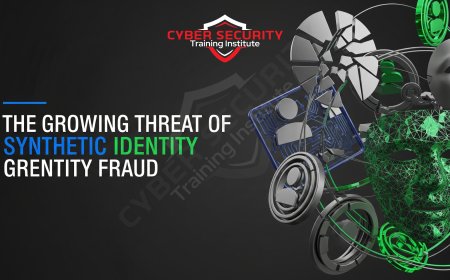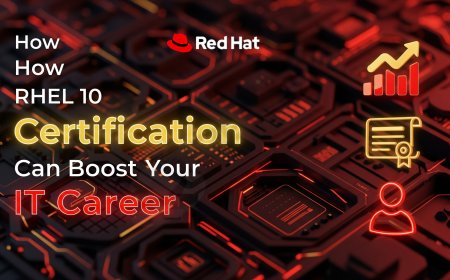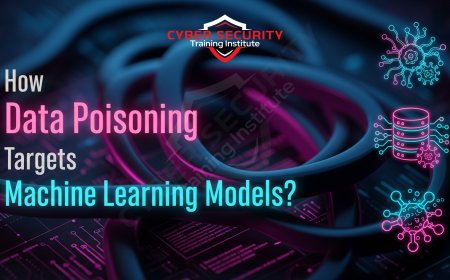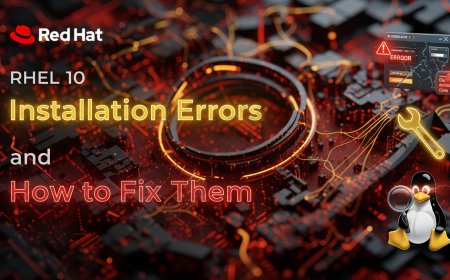Can AI Tools Like Darktrace Help in Cloud Security Management?
As businesses race to embrace cloud computing, the promise of flexibility, scalability, and cost savings comes with a catch: a new frontier of cyber threats. Cloud environments, with their dynamic and interconnected nature, are prime targets for hackers exploiting misconfigurations, stolen credentials, or novel attacks. Traditional security tools often struggle to keep up with these evolving risks. This is where AI-powered solutions like Darktrace step in, offering a smarter, more adaptive approach to cloud security management. In this blog post, we’ll explore how tools like Darktrace leverage artificial intelligence to protect cloud environments, why they’re essential for modern businesses, and whether they truly deliver on their promise of robust security.
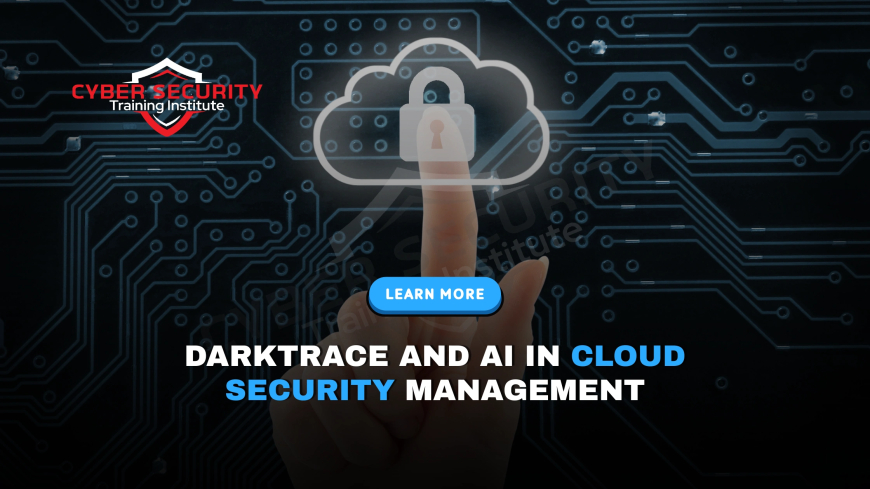
Table of Contents
- Introduction
- The Challenges of Cloud Security
- What is Darktrace?
- How Darktrace Enhances Cloud Security
- Key Features of Darktrace for Cloud Security
- Use Cases in Cloud Security Management
- Industries Benefiting from Darktrace
- Comparison of Cloud Security Tools
- Benefits of AI-Powered Cloud Security
- Challenges and Considerations
- Conclusion
- Frequently Asked Questions
Introduction
The cloud has transformed how businesses operate, enabling everything from remote work to real-time data analytics. However, this shift has also introduced complex security challenges. A recent survey found that 79% of companies experienced at least one cloud breach in the past 18 months, often due to misconfigurations or unauthorized access. Traditional security tools, designed for on-premises systems, struggle to adapt to the fluid nature of cloud environments. AI-powered tools like Darktrace promise to bridge this gap by using machine learning to detect and respond to threats in real time. But can they truly help manage cloud security effectively? Let’s dive into how Darktrace works and why it’s a game-changer for businesses relying on the cloud.
https://www.darktrace.com/cyber-ai-glossary/how-to-differentiate-cloud-security-tools
The Challenges of Cloud Security
Cloud environments are inherently dynamic, with resources scaling up or down and users accessing data from various locations. This creates unique security challenges, including:
- Misconfigurations: Incorrect settings in cloud platforms like AWS or Azure can expose data to attackers.
- Limited Visibility: Multiple cloud platforms can make it hard to monitor all assets effectively.
- Advanced Threats: Hackers use AI-driven attacks, like sophisticated phishing or ransomware, that evade traditional defenses.
- Compliance Requirements: Industries like healthcare and finance must meet strict regulations like GDPR or HIPAA.
These challenges demand a new approach, one that AI tools like Darktrace are designed to address by learning and adapting to each organization’s unique environment.
What is Darktrace?
Darktrace is a cybersecurity platform that uses self-learning AI to detect, prevent, and respond to cyber threats across networks, endpoints, and cloud environments. Unlike traditional tools that rely on predefined attack signatures, Darktrace’s AI learns the “normal” behavior of an organization’s systems, users, and devices. This allows it to spot anomalies—potential threats—in real time, even if they’ve never been seen before. Darktrace/Cloud, specifically designed for cloud environments, integrates with platforms like AWS, Azure, and Google Cloud, offering real-time visibility and protection.
https://cybermagazine.com/cloud-security/darktrace-ai-offers-real-time-cyber-resilience-for-cloud
How Darktrace Enhances Cloud Security
Darktrace’s approach to cloud security revolves around its self-learning AI, which builds a “pattern of life” for every user, device, and workload in an organization’s cloud environment. Here’s how it works:
- Behavioral Analysis: Darktrace monitors network traffic, user behavior, and cloud configurations to establish a baseline of normal activity.
- Anomaly Detection: It identifies deviations from this baseline, such as unusual data access or traffic spikes, that could indicate a threat.
- Autonomous Response: Darktrace Antigena can automatically take actions, like isolating a compromised resource, to stop threats without human intervention.
- Real-Time Visibility: Provides a dynamic view of cloud assets, helping teams understand risks and attack paths.
For example, if a hacker exploits a misconfigured AWS bucket, Darktrace can detect the unusual access pattern and block the activity before data is stolen, all within seconds.
Key Features of Darktrace for Cloud Security
Darktrace/Cloud offers a suite of features tailored for cloud security management:
- Comprehensive Visibility: Monitors all cloud assets, including containers, Kubernetes, and microservices, for a 360-degree view.
- Cloud-Native Threat Detection: Identifies threats like account takeovers or insider attacks in real time.
- Proactive Risk Management: Flags misconfigurations and vulnerabilities before they’re exploited.
- Compliance Support: Helps organizations meet regulatory standards by monitoring data access and configurations.
- Integration with Cloud Platforms: Seamlessly works with AWS, Azure, and Google Cloud for unified security.
- https://cybermagazine.com/cloud-security/darktrace-ai-offers-real-time-cyber-resilience-for-cloud
Use Cases in Cloud Security Management
Darktrace is versatile, addressing various cloud security scenarios:
- Misconfiguration Management: Detects and prioritizes risky settings, such as open S3 buckets, to prevent data leaks.
- Threat Detection: Identifies novel threats, like zero-day exploits, that traditional tools miss.
- Incident Response: Automatically isolates compromised resources to limit damage.
- Insider Threat Protection: Spots unusual employee behavior, such as unauthorized data access.
- Compliance Auditing: Monitors cloud activity to ensure adherence to regulations like GDPR or PCI-DSS.
- https://www.webasha.com/blog/how-darktrace-ai-prevents-cyber-attacks-real-time-threat-detection-automated-security-and-ai-powered-defense
For instance, a financial firm using Darktrace can detect a compromised user account attempting to exfiltrate data and stop it before sensitive information is lost.
Industries Benefiting from Darktrace
Darktrace’s AI-driven approach benefits industries with high-stakes cloud environments:
- Healthcare: Protects patient data and ensures HIPAA compliance.
- Finance: Secures transactions and detects fraud in cloud-based banking systems.
- Retail: Safeguards customer data in e-commerce platforms.
- Government: Defends against advanced persistent threats (APTs) targeting cloud infrastructure.
- Manufacturing: Secures IoT devices and cloud-based production systems.
- https://www.webasha.com/blog/how-darktrace-ai-prevents-cyber-attacks-real-time-threat-detection-automated-security-and-ai-powered-defense
Comparison of Cloud Security Tools
| Tool Type | Key Strength | Best Use Case |
|---|---|---|
| Darktrace/Cloud | AI-driven anomaly detection | Real-time threat detection and response |
| CASB | Access management | Preventing unauthorized access |
| CSPM | Policy enforcement | Maintaining security posture |
| CWPP | Workload protection | Securing cloud workloads |
Benefits of AI-Powered Cloud Security
Tools like Darktrace offer significant advantages for cloud security management:
- Proactive Threat Detection: Identifies novel threats before they cause harm.
- Automation: Reduces manual workload, allowing teams to focus on strategic tasks.
- Scalability: Adapts to dynamic cloud environments without constant reconfiguration.
- Reduced False Positives: AI learns normal behavior, minimizing unnecessary alerts.
- Compliance Support: Ensures adherence to regulations through continuous monitoring.
- https://www.darktrace.com/products/cloud
Challenges and Considerations
While powerful, AI tools like Darktrace have some challenges:
- Complexity: Initial setup and integration with cloud platforms can be resource-intensive.
- Skill Requirements: Teams need training to interpret AI-driven insights effectively.
- Cost: Commercial solutions may be expensive for smaller organizations.
- Data Privacy: Ensuring AI tools comply with data protection regulations is critical.
- https://www.darktrace.com/cyber-ai-glossary/how-to-differentiate-cloud-security-tools
Despite these challenges, the proactive protection and automation offered by Darktrace make it a compelling choice for cloud security.
Conclusion
AI tools like Darktrace are revolutionizing cloud security management by addressing the unique challenges of dynamic, cloud-based environments. With self-learning AI, real-time threat detection, and autonomous response capabilities, Darktrace/Cloud provides comprehensive visibility and protection against misconfigurations, account takeovers, and novel threats. Industries like healthcare, finance, and government benefit from its ability to secure sensitive data and ensure compliance. While challenges like setup complexity and costs exist, the scalability, automation, and proactive defense offered by Darktrace make it a vital tool for businesses navigating the cloud. As cyber threats grow more sophisticated, AI-powered solutions are not just helpful—they’re essential for staying secure in the cloud era.
Frequently Asked Questions
What is Darktrace/Cloud?
Darktrace/Cloud is an AI-powered cybersecurity solution designed to protect cloud environments by detecting and responding to threats in real time.
How does Darktrace differ from traditional cloud security tools?
Unlike traditional tools that rely on known threat signatures, Darktrace uses self-learning AI to detect anomalies based on normal behavior patterns.
Can Darktrace prevent cloud data breaches?
Yes, it detects misconfigurations and unauthorized access, stopping breaches before they escalate.
What types of threats does Darktrace address in the cloud?
It tackles misconfigurations, account takeovers, ransomware, phishing, and insider threats.
Does Darktrace integrate with major cloud platforms?
Yes, it seamlessly integrates with AWS, Azure, and Google Cloud for unified security.
How does Darktrace ensure compliance?
It monitors cloud activity and configurations to meet standards like GDPR, HIPAA, and PCI-DSS.
Can Darktrace detect unknown threats?
Yes, its AI identifies novel threats by spotting deviations from normal behavior.
Is Darktrace suitable for small businesses?
While powerful, its cost and complexity may be challenging for smaller organizations.
How fast does Darktrace respond to threats?
It can detect and respond to threats within seconds, minimizing damage.
What is Darktrace Antigena?
Antigena is Darktrace’s autonomous response feature that isolates threats without human intervention.
Does Darktrace reduce false positives?
Yes, its AI learns normal behavior, reducing unnecessary alerts compared to traditional tools.
Can Darktrace protect hybrid cloud environments?
Yes, it secures both on-premises and cloud-based systems, including hybrid setups.
How does Darktrace handle misconfigurations?
It identifies and prioritizes risky settings, like open storage buckets, to prevent exploitation.
Is training required to use Darktrace?
Basic training is needed to interpret insights and configure the system effectively.
Can Darktrace operate offline?
Yes, it can secure on-premises networks without cloud updates, though cloud integration enhances functionality.
How does Darktrace support security teams?
It automates threat detection and response, freeing teams for strategic tasks.
What industries benefit most from Darktrace?
Healthcare, finance, retail, government, and manufacturing gain from its cloud security features.
Does Darktrace replace human analysts?
No, it augments human expertise by automating repetitive tasks and providing insights.
Can Darktrace detect insider threats?
Yes, it identifies unusual employee behavior, like unauthorized data access, in the cloud.
How do I get started with Darktrace?
Contact Darktrace for a demo or consult with their team to integrate it with your cloud environment.
What's Your Reaction?
 Like
0
Like
0
 Dislike
0
Dislike
0
 Love
0
Love
0
 Funny
0
Funny
0
 Angry
0
Angry
0
 Sad
0
Sad
0
 Wow
0
Wow
0






